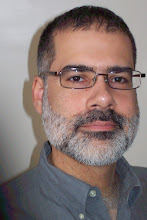This last Wednesday, I was given the opportunity to speak at Hofstra University. It came about because one of the members of my zen sangha is chair of the Religious Studies department out there, and she's teaching a course entitled, "Religion and Medicine." Knowing I'm a practitioner of TCM, she asked me to come by and talk a little about the concepts of Chinese medicine.
Meeting and interacting with these young minds was a wonderful experience. There were some wallflowers in the class, but for the most part, they seemed like an engaging bunch. This got me to thinking about something one of my teachers from PCOM once noted; that the future of TCM is here in the United States, not in China.
Why here? Because this is fertile ground for ideas that are actually very old, but which are new to these youngsters. Plus, their minds are open to these ideas; ideas of holism vs. reductionism, ways of looking at patterns rather than causal relationships. Chinese medicine is a whole other way of looking at the world; it's not necessarily hostile or antagonistic to biomedicine, but can be complementary to it.
It seems to me that the big sin of many people who espoused Chinese medicine to the West are guilty of is a simple, innocent one: They tried to translate it. My mother, who made her living as a translator, used to say to me, "You can't translate literally, otherwise, it makes no sense." Yet, this is what many exponents of TCM have tried to do, in their efforts to win over people in the West. Perhaps no concept has been mangled more than the concept of "qi." So often, in the literature, people have tried to equate "qi" with electricity, bio-electricity, energy, spirit, etc. Yet, none of these are really correct, and do violence to the concept of "qi" as a whole to boot. As is often the case with Chinese characters and ideas, there is no one English word that can adequately capture the concept of "qi" in its entirety, and to try to do so is to lose the utility of the idea. "Qi" is the quality of and suchness of a thing that you cannot see with the naked eye (that last part is crucial), yet you know is there because of the effect that it has. Coming from a time where microscopes and other such tools were absent, "qi" is a unique work-around for people who needed an idea for their minds, and consequently their hands, to work with. "I know there's something in this that aids digestion. I can't see it directly, but it's there; that must be this herb's qi." Microscopes be damned!
Which brings me back to these young people; their minds haven't become entirely encrusted with cultural detritus yet, to the point where they can't conceive of another way of looking at the world. This, really, is the key to being able to grasp and to expound Chinese medicine; by elucidating that this is a way of looking at things, and not one-to-one bad translations of Western medical concepts.
When I was an undergraduate, I studied anthropology, so I understand that perspective and view are the keys to another cultures ideas. Perhaps with more exposure to ideas presented in this way, others will realize this also. Then we may really see a flourishing of Chinese medicine here in the States.
Subscribe to:
Post Comments (Atom)

No comments:
Post a Comment